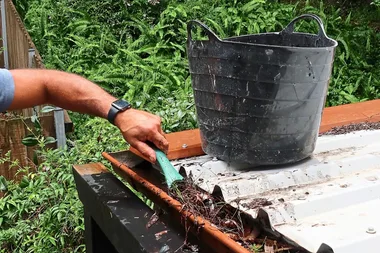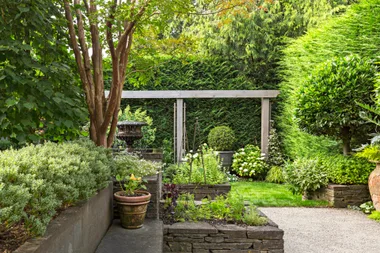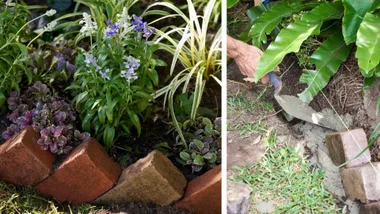Gather your supplies
400 x 400 x 40mm pavers (we used Eurostone pavers in Zurich)
Road base
Paving sand
Sand and cement mix or mortar mix
You’ll also need
Marking paint; shovel; mattock; spirit level; rake; pegs; rubber mallet; plate compactor (hired); stringline; straightedge; screed rails; float; trowel; damp sponge.
Here’s how
Step 1
Use marking paint to mark out path, allowing room on both sides of pathway for haunching. Using shovel and mattock, remove turf and excavate topsoil to required depth, allowing for thickness of paver, plus 70mm of road base and 30mm of paving sand (ours was 140mm). Roughly level site with the back of rake.
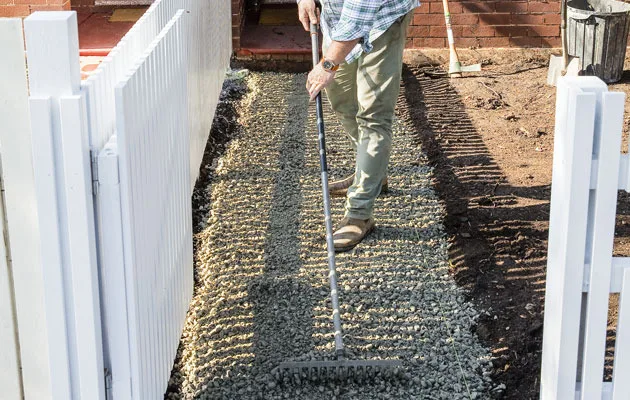
Step 2
Use rake to spread 80mm bed of road base evenly over area. Wet and compact down to 70mm with plate compactor.Use rake to spread 30mm bed of paving sand evenly over road base.
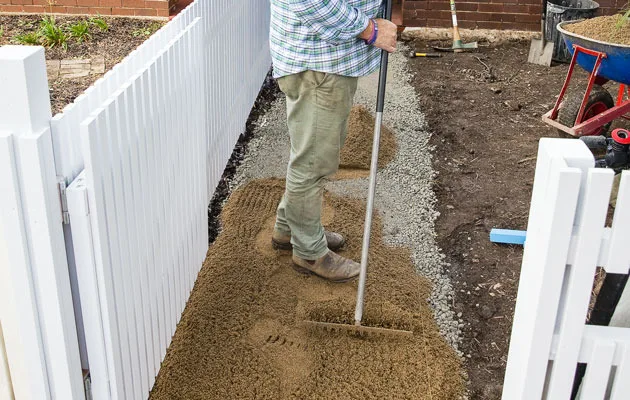
Step 3
Use rake to spread 30mm bed of paving sand evenly over road base.
Step 4
At top of path, push 1 paver into sand to establish correct finished height level. Against lawn borders, use pegs and rubber mallet to set up a stringline to keep edge straight.
Step 5
Use straightedge to create smooth tracks on both sides of path down to height set by paver in Step 4.
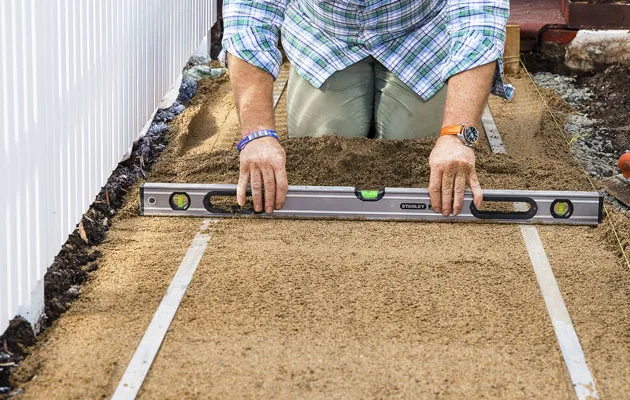
Step 6
Lay screed rails in tracks you have just created and smooth off sides with float. Using spirit level or straightedge, steadily drag along rails, screeding off and packing sand to create a firm, level laying surface. Remove rails and smooth tracks with float.
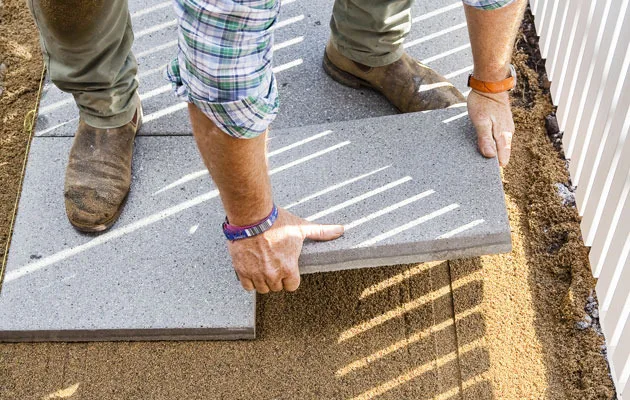
Step 7
Starting in 1 corner, lay pavers in desired pattern, allowing 2-3mm gaps between each. Gently tap tops of pavers with rubber mallet to ensure they are flush. Check level.
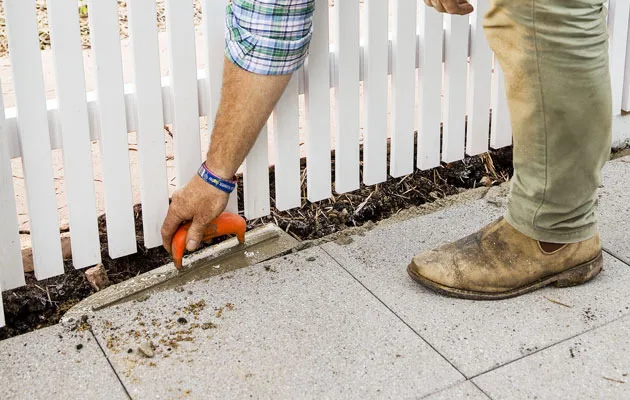
Step 8
Finish laying pavers for entire path. Mix up sand and cement mix or mortar mix in wheelbarrow, then use trowel to haunch sides, spreading mix at a 45° angle. Use damp sponge to clean excess mix off pavers.
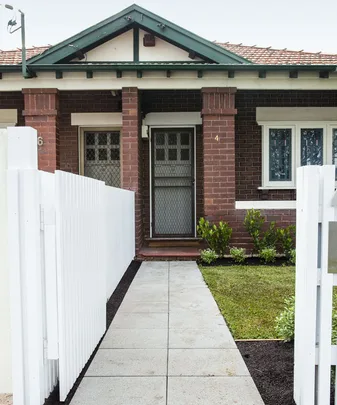 Better Homes and Gardens
Better Homes and Gardens



